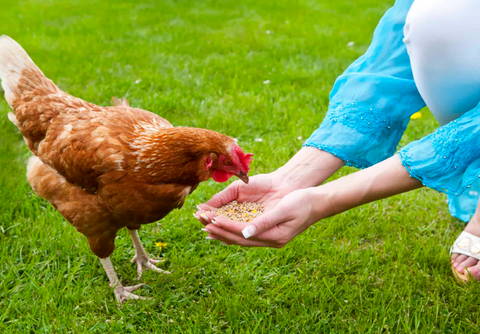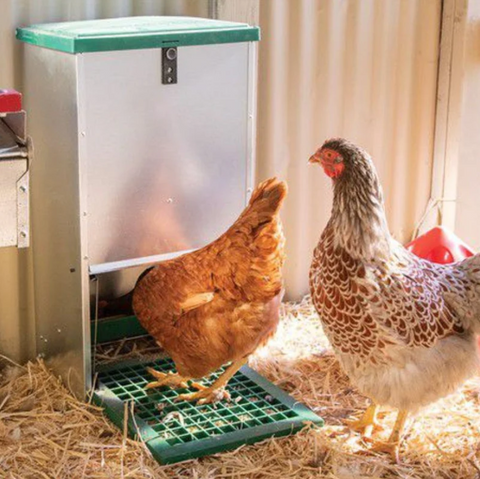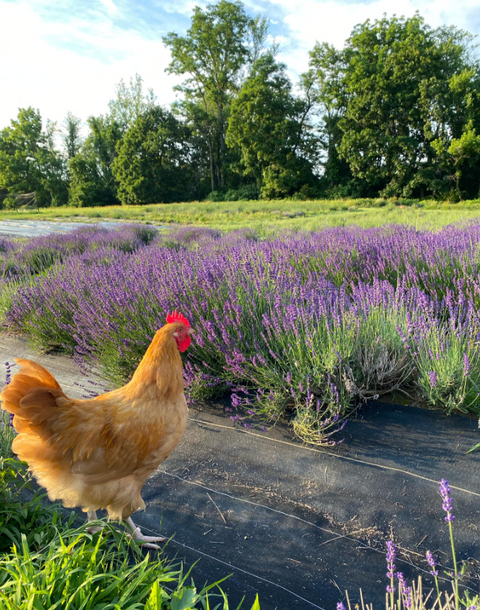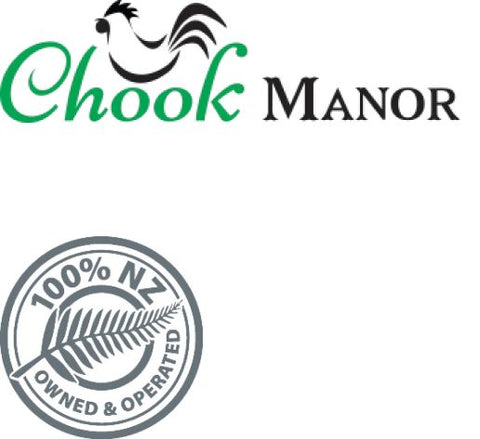🐓 How Much Should I Be Feeding My Chickens?
If you’ve ever stood in front of your chicken feeder wondering, “Am I giving them too much… or not enough?” — don’t worry, you’re not alone. Feeding chickens can feel a bit like guesswork, but once you understand their needs, it’s actually pretty straightforward. Let’s break it down!
🍽️ How Much Do Chickens Actually Eat?
On average, most adult hens will munch their way through about 120 grams of complete feed per day.
But here’s the thing:
-
If their diet is mostly grain mixes or table scraps (a bit like us living off chips and cake), they’ll eat more because they’re trying to fill the nutritional gaps.
-
A complete layer feed has just the right balance of protein, energy, vitamins, and minerals—so hens naturally stop when they’ve had enough.
👉 Factors like breed, age, laying cycle, molting, how much they forage, and even the weather will all change how much they eat.
🥗 Free-Feeding vs. Rationing
The best option for most backyard flocks? Unlimited access to a complete feed.
Why? Because:
-
Some days hens need a little more, some days a little less. Free access lets them self-regulate.
-
If you try to ration feed, bossy hens hog the food while the quieter girls miss out. Not fair.
-
Limiting feed doesn’t magically make them forage more—it just makes lower-ranking hens go hungry.
✨ Top Tip: Scraps are fine in moderation, but don’t give them more than they can polish off in about 20 minutes. Otherwise, they’ll fill up on junk and skip their balanced diet.
🐥 5 Reasons Chickens Need Unlimited Access to Complete Feed
-
Limited forage in runs – Even a big backyard gets stripped of bugs and greens fast.
-
Fewer natural snacks – Backyard environments don’t have the same variety of insects and wild plants chickens would find in nature.
-
Longer lives – Today’s backyard hens aren’t usually culled young. To stay healthy and productive into “old age” (yep, 2+ years counts!), they need the right nutrition.
-
High egg production – Many modern breeds can lay 300+ eggs a year. That’s a lot of nutrients leaving their bodies!
-
No mother hen lessons – Most chickens don’t have a mama hen to show them where to find the good stuff, so they’re not as savvy foragers.
🥚 The Ideal Diet for Laying Hens
If you’re keeping chickens for eggs (and who isn’t excited about fresh eggs every morning?), nutrition is everything.
✔️ Offer free access to a complete layer feed (like Weston Milling Peak Layer).
✔️ Let them forage—it keeps them happy, active, and greens are a healthy bonus.
✔️ Keep scraps and extras as occasional treats, not main meals.
Your hens can live for 5+ years, so feeding them right means more eggs, healthier birds, and fewer problems down the line.
🌟 Final Peck
So, how much should you be feeding your chickens? As much complete feed as they want! With the right nutrition, they’ll reward you with glossy feathers, happy clucks, and baskets of eggs. And really, isn’t that what we’re all here for? 🐓🥚💛




